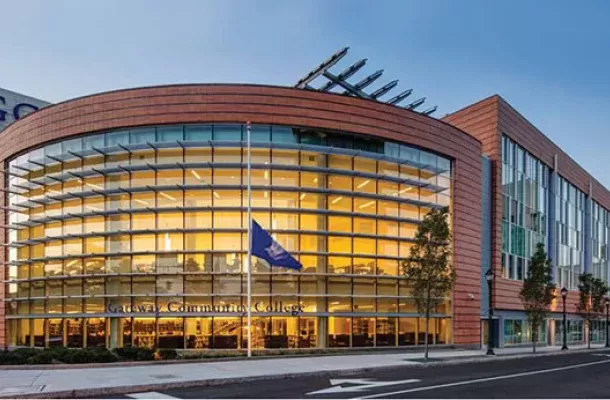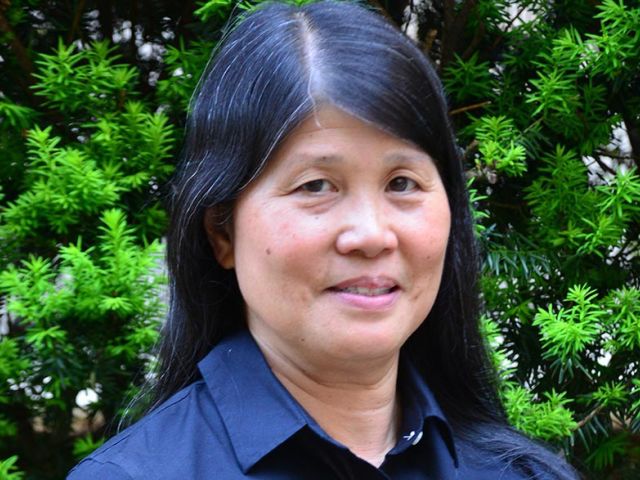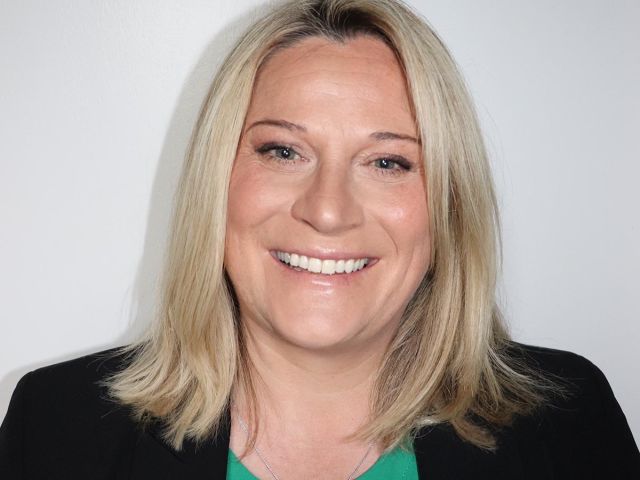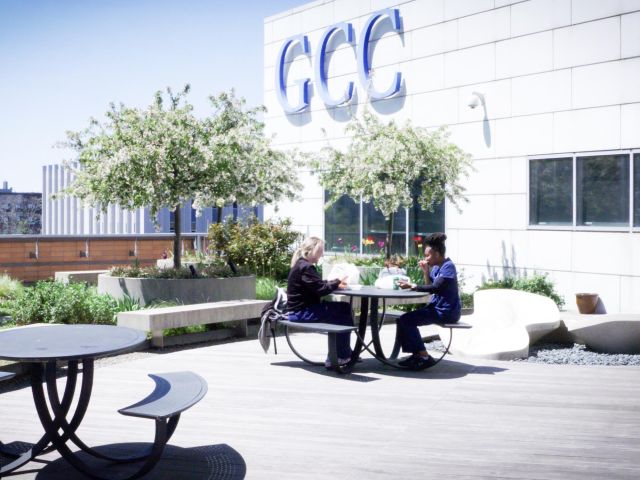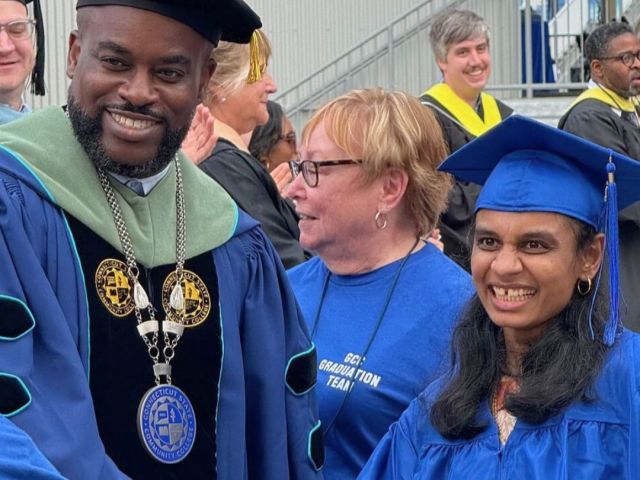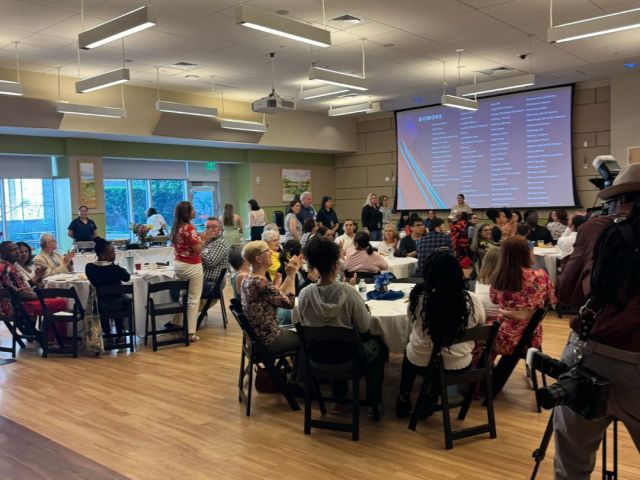News Center
Bringing you the latest news and events from Gateway Community College.
GCC Creates First-of-its Kind Training Program in the State
Share
Gateway Community College (GCC) in partnership with the state Department of Public Health and the Connecticut Cancer Partnership has developed the first Patient Navigator Program in the state, in collaboration with Project Access-New Haven, Columbus House and the Partnership for Strong Communities.
Patient Navigators are professionals who work in hospitals, doctors’ offices and in social work settings, helping patients navigate their health care and teaching them to advocate for themselves to get the care they need and deserve. The Patient Navigator Training Program, one of very few such programs across the country, was funded by a $25,000 grant from the state Department of Public Health.
Navigating the health care system is fraught with complexities. When people face additional challenges like poverty or substance abuse, lack of transportation or health insurance, they can get so overwhelmed they fail to show up for doctor visits. They may stop taking their medications or they may turn to the emergency room again and again as the one source for their health care.
Tracy Blanford, associate professor of nursing at GCC, said there are many barriers that stand in the way of people accessing health care, whether lack of money or medical insurance, language issues, mental health issues, or anxiety about a previous negative experience using the health care system. “At its root, to me this is a social justice issue being addressed,” Blanford said. “The patient navigator will work to get care for people who have been disenfranchised from the health care system. As long as the effort is focused on people in need, then it will have fulfilled its role.”
Fifteen students are currently enrolled in the first session and that number will grow to 20 in the next session, said Erika Lynch, Continuing Education Coordinator for GCC’s Workforce Development & Continuing Education Division. Students finishing the course of study will be awarded a Patient Navigator Certificate of Completion from the GCC Continuing Education Department and, Lynch said, prospects for employment are very promising. “What we do in Workforce Development needs to be thoughtful and it has to lead to employment and we see a great need for this position,” Lynch said.
Navigating patient care may become part of an employee’s existing job as it is reshaped to meet the demands of today’s changing health care system or patient navigation may be a full-time position itself.
The training program got its start because Dr. Suzanne Lagarde of Project Access New Haven saw a genuine need for patient navigators. Lagarde, a gastroenterologist and an assistant clinical professor of medicine at Yale, is one of the founders of Project Access New Haven, where physicians, hospitals and community organizations work together to provide donated specialty health care for low-income, uninsured people in the Greater New Haven area. “We serve the working poor and so many people had challenges making and then keeping appointments for so many reasons,” she said. With patient navigators in place at Project Access, the percentage rate of missed appointments decreased from 30 to 40 percent to 2 percent.
She knew that so many people could benefit from the role of the patient navigator and what the state needed was a training program. She brought the idea to Vicki Bozzuto, GCC’s Dean of Continuing Education and Workforce Development. Dr. Lagarde wanted to see if GCC could help to create and then offer a certificate course that would train this kind of worker. “I was so impressed with the rapidity of Gateway’s response, their efficiency, how much they wanted to be involved to help find ways to get care to people in the region,” Lagarde said.
“My response was `Absolutely,’ “Bozzuto said. “Using cancer care as a model, we talked about how a patient navigator could see to the health care needs of so many different populations. It is the human thing to do, to get people to the care they need.”
Soon Dr. Lagarde, GCC staff and faculty, representatives from the Connecticut Cancer Partnerships, the state Department of Public Health and the Workforce Alliance sat down together to talk about the program, Lynch said. Genevieve Munoz, a social worker from the Yale University School of Medicine’s Department of Psychiatry, coordinated the curriculum.
Representatives from all fronts of the health care system, patients, doctors, hospital administrators, social workers, mental health workers and health insurance companies are calling patient navigating a win-win for everyone involved and a way to bring back the connection between patient and doctor, between the patient and the health care system.
First and foremost, Lagarde said, people get the health care they need. Physicians won’t lose appointment slots because of no-shows and they can provide more complete care if patients are directed toward the right services. Navigators follow up with patients, helping schedule appointments, find transportation, reminding patients to take medications and teaching them to advocate for their health care. Frequent visits to the ER for non-emergency care will decrease.
Lagarde said this not only represents a major cost saving to the hospitals and the health care industry but also provides a better and more efficient model of care. Lynch said even insurance companies are pushing for such a model, encouraging hospitals and medical groups to consider creating positions in their clinics and practices.
GCC’s Patient Navigator Training Program is divided up into 24 hours of classroom time, three days for eight hours on Saturdays, and 24 hours of observation time in various medical settings. The observation part is key, Lagarde said, because the patient navigators must know the community and the population of people they will be serving.
The students currently enrolled in the program are incumbent workers; each of them already works in a health care-related industry. They are nurses, health educators, outreach workers, social workers, and mental health workers. They work at Project Access, Columbus House and the Partnership for Strong Communities and in other settings. They range from professionals with a master’s degree to employees with a GED and all have a stake in patient care. They applied to GCC’s program, Lynch said, because they have seen people not get the health care they require because they often struggle to make their way through the system.
When word first spread that GCC was starting the program, Lynch said the phone was “ringing off the hook. “There is a hunger for this program. While someone may work with the homeless population and know about housing services and soup kitchens in the area, they may not know about how they can help someone who has not been getting the care he needs for his diabetes,” Lynch said.
Lagarde added that she has heard from physicians in different parts of the state asking about the GCC training program and wanting to know more. “I told the students on the first day there is a tidal wave of interest in patient navigation, not just in the state but across the country,” she said.
The next session will also be open to people already working in the health care profession and will include an additional six hours of training in colorectal cancer screening. The demand for patient navigators specifically trained to help patients move through the more complicated aspects of cancer care is great, Lagarde said.
In the near future, however, the program will open to people who are not currently working in health care under a selective admissions process with specific programmatic entry level criteria. Lagarde, Lynch and Blanford are quick to point out, however, that the job requires a very specific skill set – empathy, communication, organization, resourcefulness and a strong work ethic.
The Patient Navigator Training Program has its roots nationally in the pioneering work of Dr. Harold Freeman who explored the disparities in the health outcomes of people with cancer. Those patients who didn’t have health care or couldn’t access it because of poverty, mental illness, substance abuse or other issues had worse outcomes and higher mortality rates than those who could readily access health care. He developed the Harold P. Freeman Patient Navigation Institute in 1990 to eliminate barriers to timely cancer screenings, diagnosis, treatment and supportive care.
The GCC training program is modeled after his intensive three-day training program. However, the GCC program extends beyond cancer care. When the first class convened in October, Lagarde told the students they had to be creative, persistent and compassionate. “They also have to be articulate and outgoing, no timid souls here. They have to know this is a highly connective job and such an important job,” she said.
Added Blanford, “Ultimately you could say patient navigation is about saving lives.”
